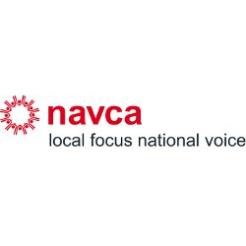Measures in the Localism Act intended to give more power to local charities are “fatally flawed” and will never be useful in their current form, local infrastructure body Navca has told a Commons committee.
In the Localism Act, which became law in 2011, the government introduced a suite of “community rights”. These include the community right to challenge – intended to make it easier for local people to take control of public services – and the community right to bid – intended to help acquire local assets. Other rights include support to build local housing and participate in local planning.
The Communities and Local Government Select Committee is currently conducting an inquiry into the effectiveness of these rights and took evidence last week from Barney Mynott, head of communications at Navca.
Navca also submitted written evidence to the committee.
Right to challenge ‘fatally flawed nuclear option’
Mynott said the right was a “nuclear option” which destroyed a charity’s relationship with a local authority, although the threat of using it might have offered charities some success.
He said there were problems with the drafting of the right to challenge and it will never have significant take-up in its current form.
“It is clear that the community right to challenge has not been successful and has rarely been used,” Navca said in written evidence to the committee. “Despite our initial support for a right to challenge we were disappointed by the final form the right took in the Localism Act and never felt that it would be useful.”
“We believe that the right as drafted is fatally flawed as successfully exercising the community right to challenge does not give challengers the right to deliver a service, but triggers a procurement process open to all service providers. This process could include large national and private sector delivery organisations.
“Local charities have a very poor record of beating national organisations in competitive tendering exercises. This means that there is little incentive for local charities to use the right.”
Community right to bid ‘needs different support’
Navca said that it was more supportive of the right to bid, which has been used 750 times, including 250 times to help acquire community pubs.
The evidence session itself was conducted in the Ivy House in Nunhead, London, the first pub to be listed under the scheme and now owned and run by a local co-operative.
“We support the community right to bid but believe that the assistance being offered is not the right type,” Navca said. “Communities need help with running existing community assets successfully rather than taking over new ones.”
Navca said the government was providing help for charities and community groups to take over community assets, but the real challenge was in supporting them to run them.
“The experience of our members is that there is often little need for support to help community groups get permission to take over local assets. Often our members are finding that local assets are being thrown at the voluntary sector in desperation by local authorities.
“The real task our members face is helping community organisations understand whether the asset they are being offered by their local council is actually a community asset or really a community liability.”










